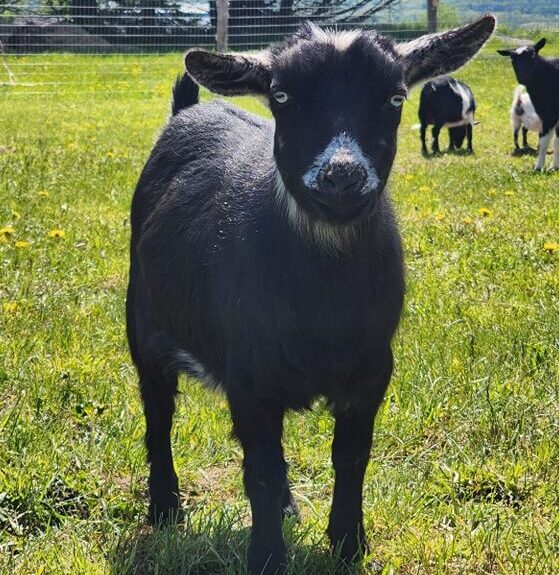Welcome to the enchanting world of Nigerian Dwarf Goats! If you’re considering adding these delightful creatures to your homestead, you’ve made a fantastic choice. Nigerian Dwarf Goats are not only adorable but also incredibly versatile, providing milk, companionship, and even helping with weed control. This guide is designed to walk you through the essentials of raising Nigerian Dwarf Goats, ensuring a happy, healthy herd on your homestead.

Why Nigerian Dwarf Goats?
Nigerian Dwarf Goats are a miniature dairy breed, known for their friendly disposition, manageable size, and high-quality milk that’s rich in butterfat. They’re an excellent choice for small farms, families, and anyone looking to produce their own goat milk products.
Getting Started: Housing and Fencing
Your goats need a safe, comfortable place to live. A sturdy, draft-free shelter protects them from the elements and gives them a place to rest. Inside the shelter, provide clean, dry bedding (straw or pine shavings work well) and space for feeding and resting.
Fencing is crucial to keep your goats safe and contained. A fence should be at least 4 feet high, with no wide gaps. Electric fencing or woven wire fencing is often recommended to deter climbing and jumping.
Feeding Your Goats
Nigerian Dwarf Goats thrive on a balanced diet of quality hay, fresh water, and a goat-specific mineral supplement. Hay should be the cornerstone of their diet, providing the necessary fiber for digestion. Fresh, clean water must be available at all times.
For additional nutrition, especially for does in milk, a ration of grain or commercial goat feed can be offered. However, it’s essential to feed grains sparingly to prevent obesity and other health issues.

Health and Wellness
Regular veterinary care is essential for keeping your goats healthy. This includes vaccinations, deworming, and routine check-ups. Familiarize yourself with common goat ailments and signs of distress, so you can act quickly if a problem arises.
Hoof care is another critical aspect of goat wellness. Hooves should be trimmed every 4-6 weeks to prevent overgrowth and lameness.
Breeding and Milk Production
If you’re interested in milk production, you’ll need to breed your does. Nigerian Dwarf Goats are known for their high fertility rates and can be bred year-round. It’s important to plan breeding carefully and ensure you have the resources to care for additional goats.
Milking requires consistency, typically once or twice a day, depending on your needs and the doe’s milk production. Proper milking practices and hygiene are essential for the health of your goats and the quality of the milk.

The Joy of Goat Keeping
Raising Nigerian Dwarf Goats is a rewarding endeavor that brings joy and fulfillment. These goats are not just livestock; they’re intelligent, social creatures that can form deep bonds with their human caretakers. Watching your herd graze, play, and interact is a delightful experience that enriches life on the homestead.
Embarking on the journey of raising Nigerian Dwarf Goats is an exciting decision that comes with its share of responsibilities and rewards. With proper care, management, and lots of love, your goats will thrive, providing you with milk, companionship, and endless entertainment. Welcome to the wonderful world of Nigerian Dwarf Goats, and enjoy every moment of your homesteading adventure!
Remember, every goat is unique, and as you gain experience, you’ll learn the quirks and needs of your herd. Stay curious, seek advice from experienced goat keepers, and don’t hesitate to reach out to veterinary professionals when needed. Happy goat keeping!
